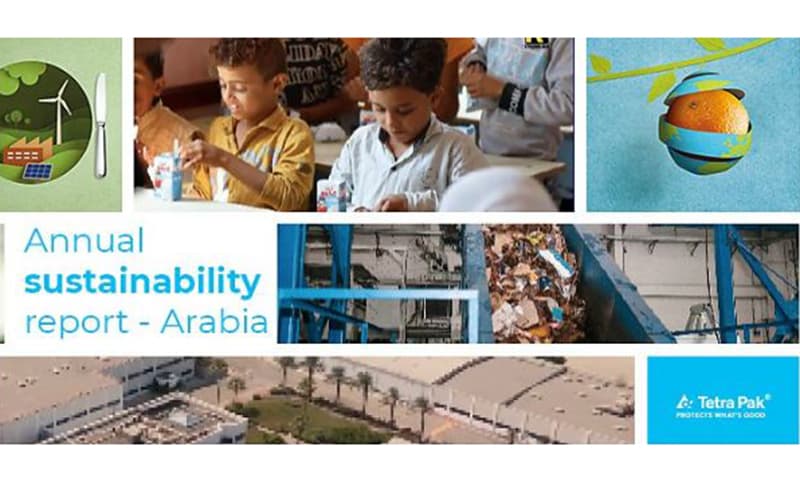Report delves into Tetra Pak’s stride towards fostering a circular economy throughout the Middle East region; highlights groundbreaking circularity initiatives in the F&B industry
Food packaging giant Tetra Pak has announced the release of its inaugural Arabia sustainability report, exemplifying major advancements in circularity and environmental leadership. The report underscores Tetra Pak’s pioneering efforts to establish a comprehensive recycling infrastructure for carton packages, setting a regional benchmark in the Middle East.
Tetra Pak moves the dial towards a regional circular economy in a landmark agreement with Union Paper Mills (UPM) that brings capacity to recycle 10,000 tonnes of carton packages waste annually in the UAE. Through efforts to establish advanced recycling systems across the region and push circularity, Tetra Pak has secured a combined investment of over $3.6 million in carton packages recycling infrastructure through strategic partnerships with UPM and Saudi Arabia’s Obeikan Paper Industries (OPI) and Saudi Top Plastic Factory (STP).
“At Tetra Pak, we believe in leading by example, and our investments in recycling infrastructure are a testament to our commitment to sustainability and an even deeper commitment to supporting our customers achieve their sustainability goals,” says Marcelo Piva, Regional Sustainability Director – Middle East and Africa. “This report highlights our ongoing efforts towards a circular economy, and our contributions to a more sustainable future for the region.”
The report covers the company’s significant impact across key areas, including circularity, nature, climate, food systems, and social responsibility.
The report goes on to highlight Tetra Pak’s flagship circularity initiatives. One such is the water filtering station at IFFCO’s Nabatat plant in Saudi Arabia that recovers and reuses 95% of water used in the equipment, significantly reducing water wastage and enhancing resource utilisation.
Another is Tetra Pak’s support for milk programmes in Yemen and Iraq that provides fortified milk to 10,000 children in Yemen and reaches 800,000 students across 1,300 schools in Iraq.
Additionally, Tetra Pak’s Jeddah factory that exports to 11 countries in the Middle East has rolled out several energy and water conservation initiatives and cut material waste through innovative technologies, demonstrating the company’s commitment to minimizing its environmental footprint.
As a first-mover in this critical space, the initiatives of Tetra Pak has not only set new industry standards, but also acts as a catalyst driving meaningful change across the region.
